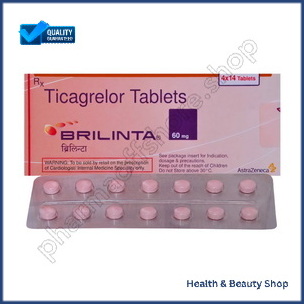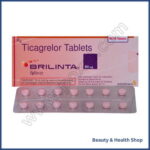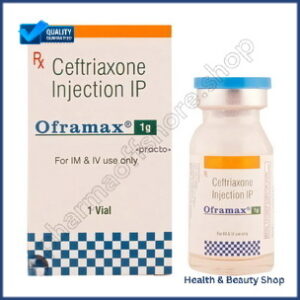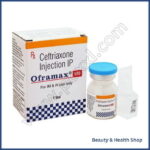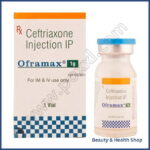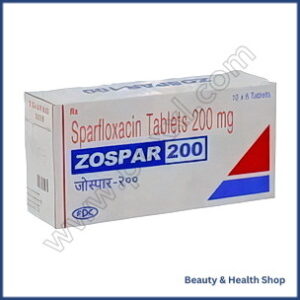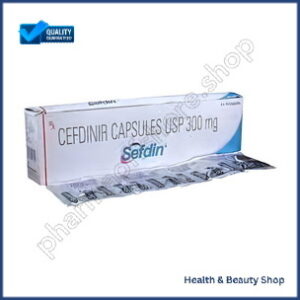ADDICTION
ALCOHOL DEPENDENCE
QUIT SMOKING
ALLERGY
ANTI FUNGAL
FUNGAL INFECTION
FUNGAL NAIL INFECTIONS
ANTI-REJECTION DRUGS
ANTI WORM
ANTIBIOTIC
BACTERIAL INFECTIONS
ARTHRITIS
GOUT
OSTEOARTHRITIS
RHEUMATOID ARTHRITIS
BLOOD
LOW PLATELET COUNT
THROMBOPHLEBITIS
VARICOSE VEINS
COLON
ANAL FISSURE
PILES
ULCERATIVE COLITIS
DIABETES CARE
DIABETES INSIPIDUS
DIABETES TYPE
DIABETIC FOOT ULCERS
GLUCOSE MONITOR
EYES/EAR CARE
DRY EYES
EYE CARE
EYE EXAMINATION
EYE INFECTION
EYE LASHES
EYE PAIN
GLAUCOMA
OCULAR HYPERTENSION
UVEITIS
FEVER CARE
MALARIA
RHEUMATIC FEVER
TYPHOID FEVER
GASTROINTESTINAL
ACIDITY
CONSTIPATION
CROHN'S DISEASE
DIARRHOEA
GALLBLADDER STONES
INTESTINAL ULCERS
IRRITABLE BOWEL SYNDROME
MOTION SICKNESS
NAUSEA
Ticagrelor (Generic)
Ticagrelor 60 mg (Generic)
Ticagrelor 90 mg (Generic)
| Amount | Price | Price / Unit |
Qty | ||
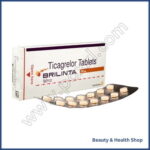
|
28 Pills | $56.00 | $2.00 |
||

|
56 Pills | $85.00 | $1.52 |
||

|
84 Pills | $124.00 | $1.48 |
||

|
180 Pills | $138.00 | $0.77 |
||

|
360 Pills | $265.00 | $0.74 |
||

|
540 Pills | $375.00 | $0.69 |
| Active Ingredient (Generic Name): | Ticagrelor |
|---|---|
| Indication: | used for blood clots |
| Manufacturer: | AstraZeneca Pharma India Ltd |
| Packaging: | 14 tablets in one strip |
From: $56.00
Consider taking ticagrelor, a generic medication that inhibits platelet activation to lower the risk of blood clots and cardiovascular events. It functions by blocking the P2Y12 receptor on platelet surfaces, which hinders platelet activation and aggregation. Benefits include reducing the risk of blood clots, cardiovascular events, and enhancing heart health. Common side effects may include gastrointestinal discomfort, bruising, and bleeding. Your doctor may prescribe a 90-mg tablet to be taken twice daily for a minimum of 12 months. Be mindful of potential interactions with other medications and discuss any risks with your healthcare provider. Explore further to gain a comprehensive understanding of ticagrelor’s effects and precautions.
Main Points
- Ticagrelor, a P2Y12 receptor antagonist, inhibits platelet activation and aggregation to reduce the risk of blood clots and cardiovascular events.
- The standard dosage is 90 mg twice daily, consistently for a minimum of 12 months, with or without food, and without missing doses.
- Monitoring is essential due to the higher risk of bleeding, gastrointestinal symptoms, and bruising, common side effects.
- Ticagrelor may interact with potent CYP3A inhibitors, inducers, and medications that increase bleeding risk, necessitating caution and consultation with healthcare providers.
- The monthly cost of ticagrelor varies from $300 to $500, but insurance coverage and patient assistance programs can help lower out-of-pocket expenses.
How Ticagrelor Works in Body
When ticagrelor is ingested, it specifically blocks the P2Y12 receptor on platelet surfaces, inhibiting the effects of adenosine diphosphate (ADP) and preventing platelet activation and aggregation. This blockage reduces the production of thromboxane A2, which is a potent vasoconstrictor and platelet aggregator. By inhibiting P2Y12, ticagrelor decreases the release of pro-inflammatory and pro-thrombotic substances, leading to a decrease in platelet-leukocyte interactions and inflammation. Consequently, platelets become less responsive, lowering the likelihood of blood clot formation.
The inhibition of P2Y12 also impacts the release of ATP from platelets, diminishing the activation of P2X1 receptors on platelets and surrounding blood cells. This decrease in reactive oxygen species production and pro-inflammatory gene expression further contributes to ticagrelor’s anti-thrombotic and anti-inflammatory properties. By acting through these mechanisms, ticagrelor effectively reduces platelet aggregation and blood clot formation, making it a valuable treatment for acute coronary syndrome and percutaneous coronary intervention.
Benefits of Taking Ticagrelor
Taking ticagrelor reduces the risk of blood clots, lowering the chances of serious cardiovascular events. By inhibiting platelet activation, ticagrelor helps prevent the formation of blood clots that can cause heart attacks and strokes, ultimately improving overall heart health.
Reduced Blood Clot Risk
Taking ticagrelor can significantly reduce the risk of blood clots, lowering the chances of heart attack and stroke. This medication works by blocking the P2Y12 receptor, which is crucial for platelet activation. By inhibiting this process, ticagrelor helps prevent the formation of dangerous blood clots, decreasing the likelihood of cardiac events and cerebrovascular accidents. This mechanism also reduces the risk of thrombotic events like deep vein thrombosis and pulmonary embolism.
Improved Heart Health
Regularly taking ticagrelor has been proven to improve heart health by reducing inflammation, enhancing blood flow, and strengthening the cardiovascular system. This is achieved by inhibiting platelet activation and aggregation, which decreases blood clot formation. Consequently, it leads to better cardiovascular function, reducing the risk of heart attacks, strokes, and other cardiovascular incidents.
Common Side Effects to Expect
When starting ticagrelor, be prepared for an increased risk of bleeding, potentially leading to symptoms like nausea, vomiting, easy bruising, and more noticeable bleeding. Monitoring closely for these effects is crucial.
Bleeding Risks Increase
Taking ticagrelor increases the risk of bleeding due to its antiplatelet effects, which can result in minor or severe hemorrhagic complications. The medication inhibits platelet aggregation, making individuals more susceptible to bleeding episodes. Common manifestations of this risk include nosebleeds, bruising, and petechiae (small red or purple spots on the skin). In more severe instances, patients may experience gastrointestinal bleeding, intracranial hemorrhage, or other life-threatening bleeding events.
Close monitoring of bleeding risk is crucial while using ticagrelor, particularly for individuals with a history of bleeding disorders or those taking medications that heighten bleeding susceptibility, such as anticoagulants or nonsteroidal anti-inflammatory drugs (NSAIDs). Dosage adjustments or additional monitoring may be necessary to mitigate bleeding risks. Any unusual bleeding or bruising should be promptly reported to a healthcare provider. By staying vigilant about these risks and taking proactive measures, the likelihood of severe bleeding complications can be minimized.
Gastrointestinal Upset Symptoms
Gastrointestinal symptoms such as dyspepsia, nausea, and diarrhea are common when taking ticagrelor. To manage these side effects effectively, it is recommended to take ticagrelor with food to reduce stomach upset. For dyspepsia, consider using antacids or acid reducers as prescribed by your healthcare provider. Nausea may be alleviated by taking ticagrelor at bedtime or with a light snack. Increasing fluid intake and avoiding spicy or fatty foods can help manage diarrhea.
If you experience persistent or severe gastrointestinal symptoms, it is important to consult your healthcare provider. They may adjust your dosage or recommend additional medications to help alleviate these symptoms. By proactively addressing gastrointestinal issues, you can minimize the impact of ticagrelor on your daily life and ensure a smoother treatment experience.
Bruising and Bleeding
Bruising and bleeding may occur more easily when taking ticagrelor due to its mechanism of inhibiting platelet aggregation and prolonging bleeding time. This can lead to easy bruising, petechiae, or ecchymoses, particularly in areas with minor trauma. Monitor your body for signs of bleeding like bloody stools or urine, vomiting blood, or coughing up blood and seek medical help if these symptoms arise. Your doctor may adjust your dosage or suggest alternative medications to reduce the risk of bleeding. Inform your doctor about all medications, including over-the-counter drugs and supplements, to lower the risk of bleeding. Avoid activities that may cause injury or trauma, such as contact sports or heavy lifting, to prevent bruising and bleeding while on ticagrelor.
Prescription and Dosage Information
Your doctor will prescribe ticagrelor as a 90-mg tablet taken twice daily for the treatment of acute coronary syndrome (ACS) or for the prevention of subsequent cardiovascular events in ACS patients. This medication is typically started in the hospital and should be taken consistently for at least 12 months. It is important to follow your doctor’s instructions precisely to ensure effective treatment. Do not skip doses, as this can increase the risk of cardiovascular events. If you miss a dose, take it as soon as you remember, but do not take extra doses to make up for it. Ticagrelor can be taken with or without food, but taking it at the same time each day helps maintain a steady level of the medication in your system. Inform your doctor of any changes in your medical condition or medications, as this may impact your ticagrelor dosage.
Interactions With Other Medications
Ticagrelor may interact with strong CYP3A inhibitors like ketoconazole, itraconazole, and clarithromycin, potentially increasing the concentration of ticagrelor in your bloodstream and the risk of bleeding. Conversely, strong CYP3A inducers such as rifampin and phenytoin can lower the concentration of ticagrelor, reducing its effectiveness. Caution is advised when combining ticagrelor with medications that elevate bleeding risk, such as warfarin, aspirin, and NSAIDs. Inform your healthcare provider about any drugs affecting platelet function, like clopidogrel, prasugrel, or cilostazol, to manage potential interactions and ensure safe treatment.
Precautions and Contraindications
When considering taking ticagrelor, it’s important to be mindful of certain precautions to ensure your safety.
Caution is advised if you are at least 75 years old, have a history of bleeding episodes, or are taking other medications that can increase the risk of bleeding.
Prior to elective surgery, it is recommended to discontinue ticagrelor 5-7 days beforehand to reduce the chances of excessive bleeding.
The safety of using ticagrelor during pregnancy and breastfeeding is uncertain, so consulting with your healthcare provider to weigh the benefits and risks is essential.
Asian patients may experience a higher susceptibility to bradycardic effects, such as a decreased heart rate, due to increased exposure to the active metabolite of ticagrelor.
Cost and Insurance Coverage
When considering incorporating ticagrelor into your treatment plan, it’s important to factor in the varying costs and insurance coverage based on your location and health insurance provider. Ticagrelor can range from $300 to $500 per month, depending on the dosage and formulation. Insurance coverage can significantly lower your out-of-pocket costs.
To determine the extent of your coverage, check with your health insurance provider as some plans may require prior authorization or have specific prescription fulfillment requirements. You might also qualify for patient assistance programs or discount cards to reduce expenses.
Exploring generic or alternative formulations of ticagrelor could offer a more cost-effective option. Consult with your healthcare provider and pharmacist to find the most economical solution for your treatment plan. Understanding the cost and insurance coverage of ticagrelor will help you make informed decisions regarding your treatment while managing your budget effectively.
Alternatives to Ticagrelor Medication
If ticagrelor is not suitable for you or if an alternative treatment is needed, your healthcare provider may suggest other antiplatelet medications with similar benefits. These options can help lower the risk of blood clots and cardiovascular problems.
Common alternatives to ticagrelor include:
- Aspirin: an oral antiplatelet drug that hinders platelet aggregation to prevent blood clots.
- Clopidogrel: a P2Y12 receptor antagonist that stops platelet activation and aggregation like ticagrelor.
- Prasugrel: another P2Y12 receptor antagonist similar to ticagrelor but with a quicker onset of action.
- Cangrelor: an intravenous P2Y12 receptor antagonist used in hospitals to decrease the chances of thrombotic events.
Consult your healthcare provider to determine the most suitable alternative medication for your specific requirements. They can assist in evaluating the pros and cons of each option and creating a tailored treatment plan.
Frequently Asked Questions
Can I Take Ticagrelor if I’m Breastfeeding?
When considering breastfeeding, caution is advised with certain medications. If you are taking a medication while breastfeeding, it is important to assess the potential risks to your baby. In this situation, you are questioning the safety of taking a specific drug while nursing. It is crucial to evaluate the drug’s properties and the likelihood of it transferring into breast milk.
Can I Consume Grapefruit Juice With Ticagrelor?
When taking medications, it is important to be cautious about consuming grapefruit juice. This juice can interact with certain drugs, potentially increasing their potency and the risk of adverse effects. While there is no specific data on grapefruit juice and ticagrelor interactions, it is advisable to avoid or limit grapefruit juice intake to reduce potential risks. It is recommended to consult your healthcare provider or pharmacist for personalized advice on this matter.
Is Ticagrelor Safe for People With Kidney Disease?
If you have kidney disease, it’s crucial to be cautious with medications. Some drugs can worsen kidney issues or interact with other medications. Discuss your kidney disease with your doctor before taking ticagrelor. They will evaluate your kidney function and overall health to determine if ticagrelor is safe for you.
Can I Drive or Operate Heavy Machinery on Ticagrelor?
When taking Ticagrelor or any medication, it is important to use caution when driving or operating heavy machinery. Potential side effects such as dizziness or lightheadedness may affect your ability to react and make decisions. It is crucial to monitor how your body responds to the medication before engaging in these activities. Begin with short, low-risk tasks and gradually progress to more demanding responsibilities. Always prioritize safety for yourself and others.
Will Ticagrelor Affect My Dental Procedures or Surgery?
Inform your healthcare provider about your ticagrelor use before undergoing dental procedures or surgery. Ticagrelor may increase the risk of bleeding, prompting your doctor or dentist to adjust your treatment plan. They may recommend a temporary cessation of ticagrelor or additional precautions to reduce bleeding complications. Open communication about your medication is crucial for a safe and successful procedure.
Conclusion
You have been prescribed ticagrelor, a medication that helps reduce the risk of heart attack and stroke by preventing platelet activation and blood clot formation. Common side effects include bleeding, bruising, and coughing, so it is important to be monitored by your doctor. Follow the recommended dosage and report any interactions with other medications. When used correctly, ticagrelor can effectively improve your health outcomes.


